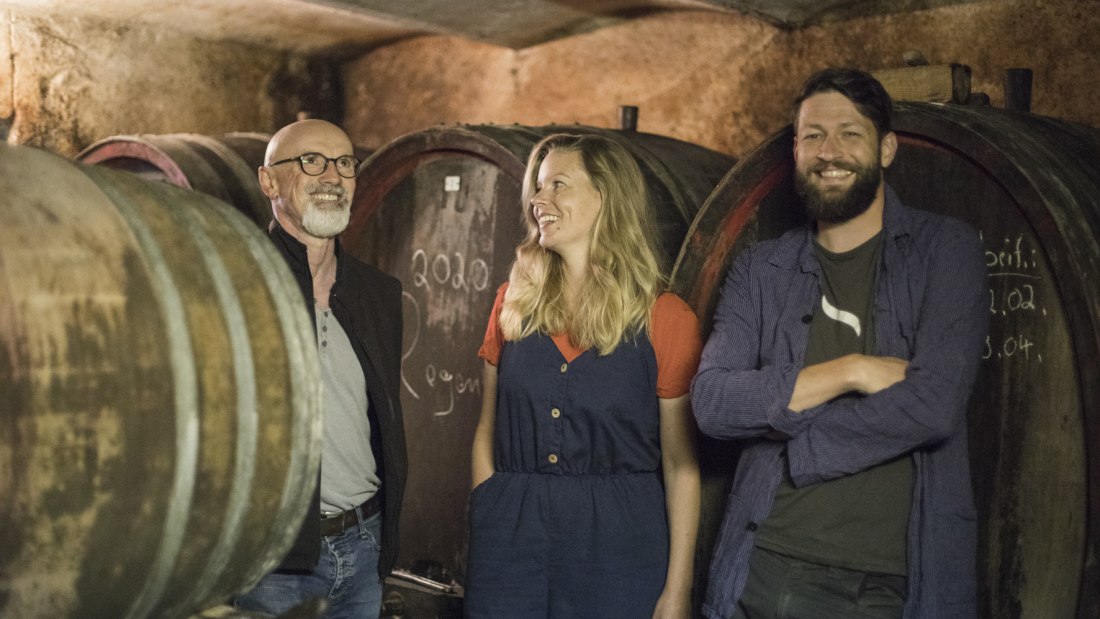Schönhals winery
The Schönhals winery, which Hanneke Schönhals took over from her father and organic pioneer Eugen in 2018, has been consistently ecological for over 30 years. Together with operations manager Martin Knab and career changer Christoph Hosseus-Schönhals, she focuses on the further development of biodynamic farming, adaptation to the challenges of climate change and a clear focus on quality.
The wines tell of the rhythm of nature, the rhythm of the manual, careful work and the melody of life in the vineyard. When working in the cellar, we rely on spontaneous fermentation, long maceration times and gentle processing in order to bring the character of every vineyard location and harvest into the bottle.










